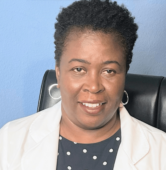OCD is treatable. Our goal is to help you get it into full remission. We are passionate about supporting and encouraging you to defeat OCD symptoms and regain control of your life. Specializing exclusively in the treatment of OCD in adult women allows us to focus 100% on the latest knowledge and highly-effective techniques that will likely work best for you. You will receive expert, high-quality and personalized treatment. Sessions will be conducted with a PhD-level psychologist, trained in highly-ranked programs with over 15 years of experience.
We treat all OCD subtypes and themes. These include, but are not limited to:
Body Dysmorphic Disorder (BDD)
Body-Focused Repetitive Behaviors (BFRBs) including Hair-Pulling (Trich)
Contamination OCD
Checking OCD
Counting OCD
Compulsive Staring OCD
Derealization OCD
Covid-theme OCD
Emotional/Mental Contamination OCD
Existential OCD
False Memory OCD
Harm/Violent Obsession OCD
Health OCD
Hit and Run OCD
Hoarding OCD
Just Right OCD
Magical Thinking OCD
Mental Hoarding (Need to Remember) OCD
Meta OCD
Need to Know OCD
Need to Tell, Ask, or Confess OCD
Need to Touch, Tap, or Rub OCD
Pedophile (POCD) OCD
Perinatal/ Postpartum/ Maternal OCD
Psychosis /Schizophrenia / “Am I going crazy” OCD
Pure O OCD
Racism OCD
Real Event OCD
Relationship OCD (ROCD)
Religious (Scrupulosity) OCD
Responsibility OCD
Rumination OCD
Sensorimotor OCD
Sexual Obsession OCD
Sexual Orientation (Homosexual) OCD/ SO-OCD (HOCD)
Somatic (Sensorimotor) OCD
Suicidal OCD
Superstition OCD
Symmetry/ Exactness/ Ordering OCD
Tourettic OCD
Transgender OCD







